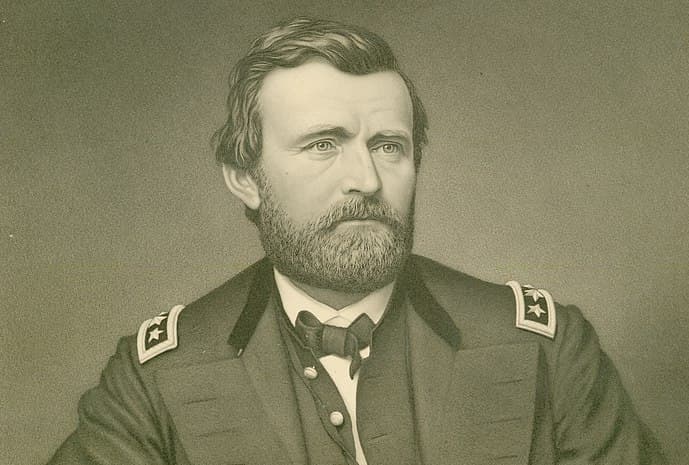American Cincinnatus: Congress Weighs Promotion for General Grant
Grant’s efforts to do the right thing stand as a roadmap to reconciliation.

The 2023 Defense Authorization Bill includes a provision to promote President Grant which — if it passes — would make him only the third American honored as a six-star General of the Armies of the United States, a fitting example of bipartisanship for the man who bound up the nation’s wounds following the Civil War.
In 1953’s “The Role of Honorary Awards in the Soviet Economic System,” Philomena Guillebaud describes how “the Soviet Union made wide use of honorary awards in the economic sphere, as part of its whole system of incentives” where, under communism, individuals weren’t rewarded based on merit.
Things are different in our capitalist republic, founded with fears of Oliver Cromwell’s military despotism in the United Kingdom but upholding Cincinnatus — the Roman general who laid down his sword and went back to his farm, rejecting personal enrichment after his service — as an ideal.
America gives out its most revered medals and ranks to only the exceptional few. There’s not even an official six-star insignia, which only John “Black Jack” Pershing — of Buffalo Soldier and World War I renown — achieved while still alive to have worn it.
President Washington was granted a posthumous sixth star, although he is sometimes said to have a seventh based on a congressional resolution for America’s 1976 bicentennial reading, “[I]t is considered fitting and proper that no officer of the United States Army should outrank Lieutenant General George Washington.”
So how does the humble, diminutive Grant earn the right to sit alongside Pershing and the president whom General Henry “Light Horse Harry” Lee eulogized as “first in war, first in peace, and first in the hearts of his countrymen”? And why now?
Louis Picone, whom I interviewed about his book “Grant’s Tomb: The Epic Death of Ulysses S. Grant and the Making of an American Pantheon,” told me that “the case for Grant’s promotion almost seems self-evident. Grant won the largest war on American soil — to preserve the Union and end slavery, freeing four million from bondage.”
Mr. Picone also offers a different perspective than the obvious, looking up to the words “Let Us Have Peace” chiseled over the entrance of the General Grant National Memorial — better known as Grant’s Tomb — at Manhattan. The words issued from the general’s own lips amid his indispensable efforts to save the Union.
“Even after death,” Mr. Picone says, “Grant remained a beacon of reunification and reconciliation while his final resting place became a sacred site both for the victors and vanquished. No other national figure or prominent location could claim such distinction. Grant the General was as beloved as Grant the Peacemaker.
“After the war, Grant admonished a nascent Lost Cause ideology and during his administration crushed the Ku Klux Klan that had metastasized in the South. But as Confederate Monuments were erected, Grant’s reputation was demolished, until his legacy, like Grant’s Tomb, was in shambles.”
The general-turned-president and his resting place have enjoyed restorations of late, with historians like Mr. Picone deconstructing the caricature — pushed by Democrats to tarnish the two-term Republican — of Grant as a “butcher” on the battlefield and corrupt in the White House.
Concurrent with these laurels, however, has been fresh denigration based on a “quirk of fate” that I wrote about for the Sun in April. Marking his 200th birthday, I explained why it’s an injustice to lump Grant — who came from a family of fervent abolitionists — in with slave-holding presidents, although his in-laws sent an enslaved man, William Jones, to serve the family.
Even here, Grant passes the test of our modern sensibilities. He endured ridicule for working shoulder-to-shoulder with black men, refused to employ the lash, and freed Jones — his most valuable “asset.”
Grant’s efforts to do the right thing stand as a roadmap to reconciliation. By promoting this American Cincinnatus to six stars, we are all invited to follow his example, that we might bridge the battle lines that divide us and achieve a lasting peace.

